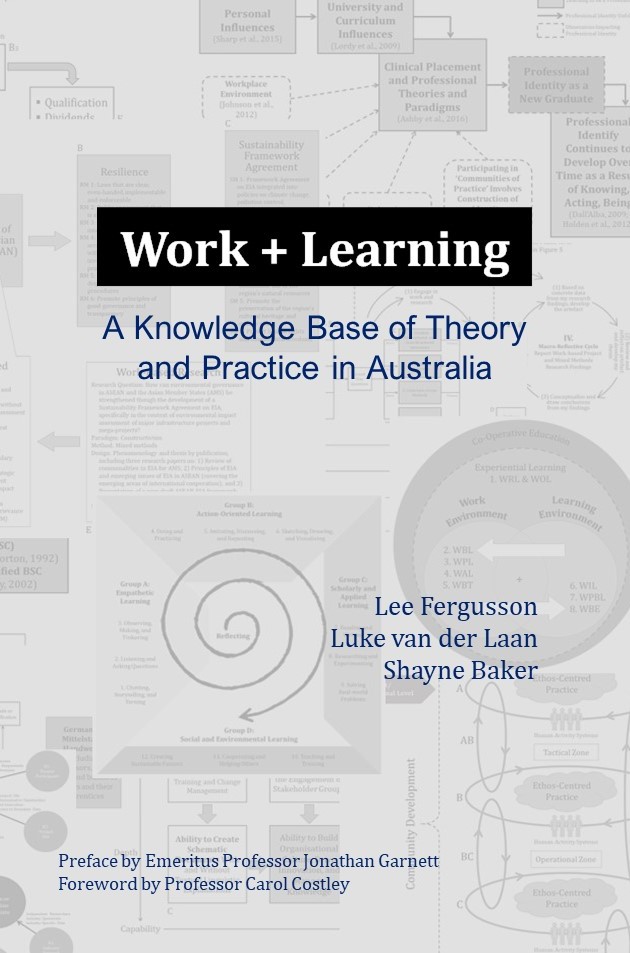Menu

Work + Learning A Knowledge Base of Theory and Practice in Australia
Categories: Work Based Learning
$71.95
Description
Modes of learning and teaching in many countries have undergone dramatic change over the last 25 years. Abandoned are the days of wise teachers serving as ‘agents of learning’ and ‘transmitters of knowledge’ and students as ‘passive and empty receptacles’ waiting patiently to absorb dispensed wisdom. Teachers are now ‘facilitators’ of individualised learning programs and, for well-established reasons, students increasingly self-direct their own study, a lot of which is often experience-based. This shift in learning and teaching has led to initiatives like work-integrated learning, community-based learning, and ‘blended learning; and calls for greater integration of workplace learning into higher education and of higher education into the workplace and the rise of alternate forms of learning in the workplace. Against this general social landscape and educational backdrop, a significant corpus of published literature also suggests an international trend away from a focus on re-enrolment in formal, discipline-based, tertiary education programs toward more broadly applied definitions and applications of knowledge and curricula to include work-based learning.
Author: Lee Fergusson, Shayne Baker and Luke van der Laan
Additional information
| Weight | .875 kg |
|---|---|
| Dimensions | 25 × 17.8 × 27 cm |

